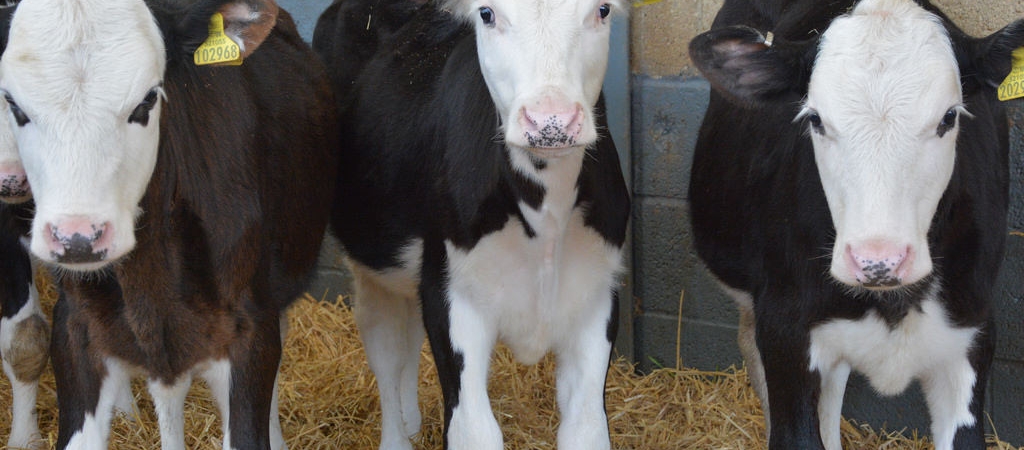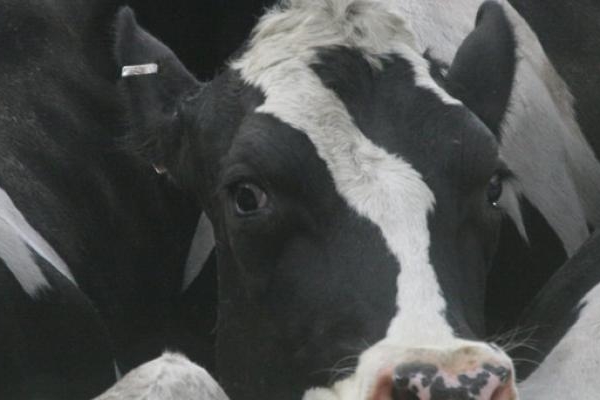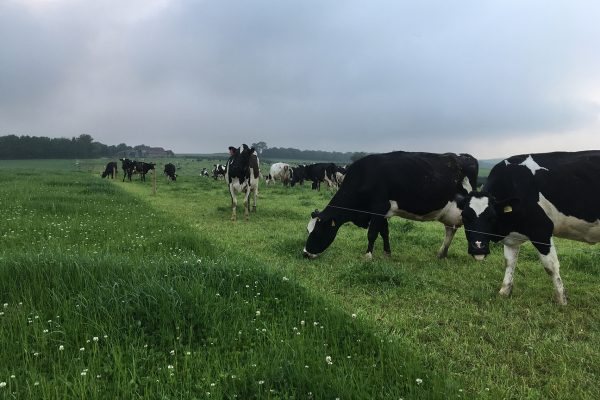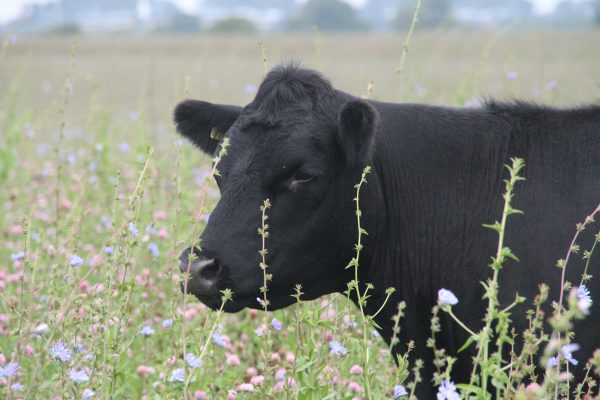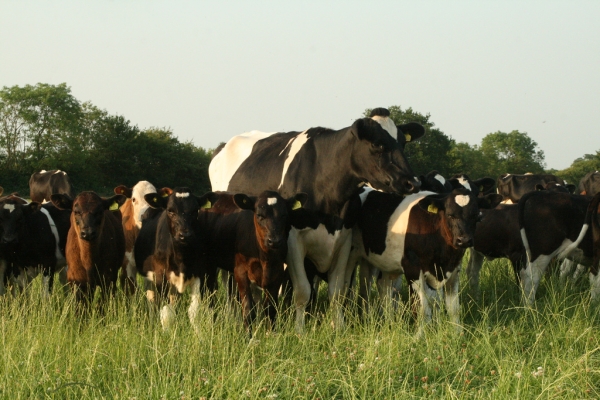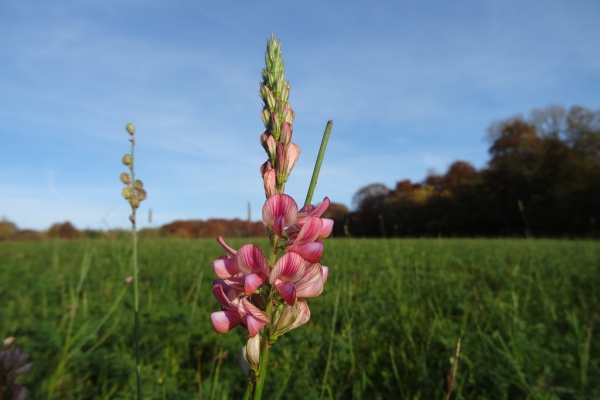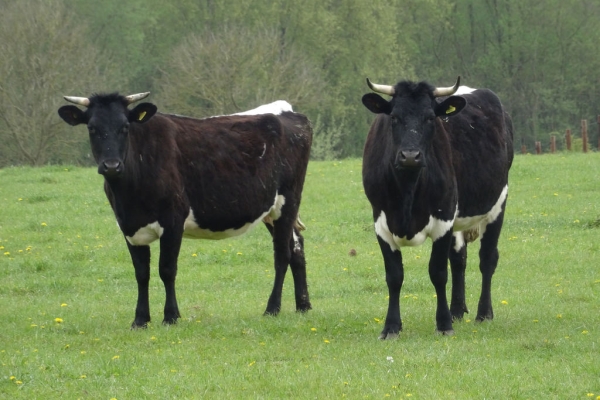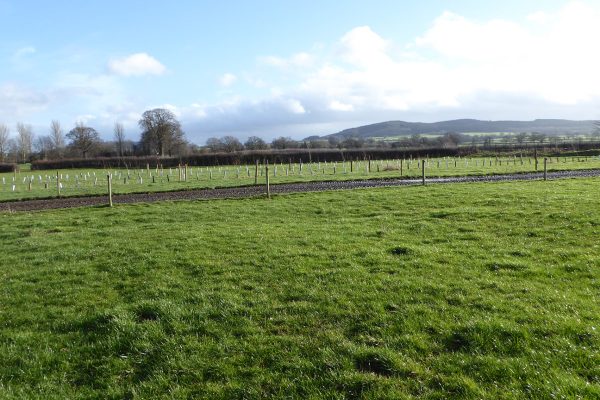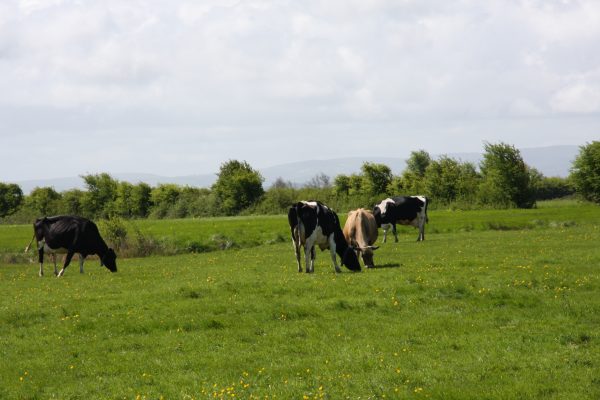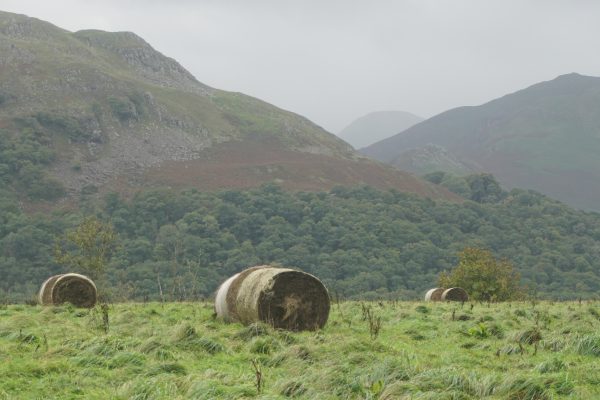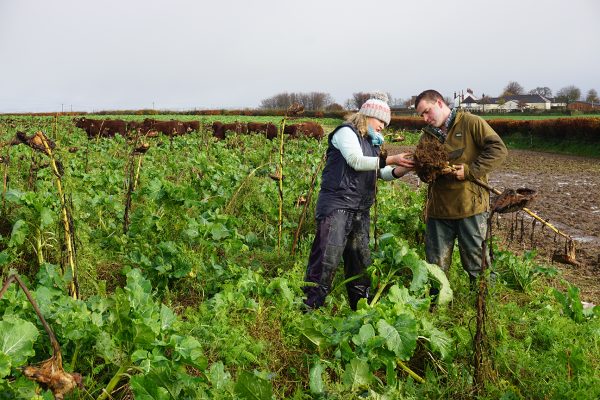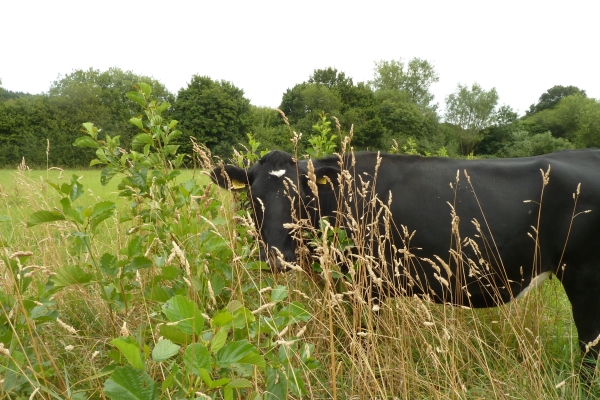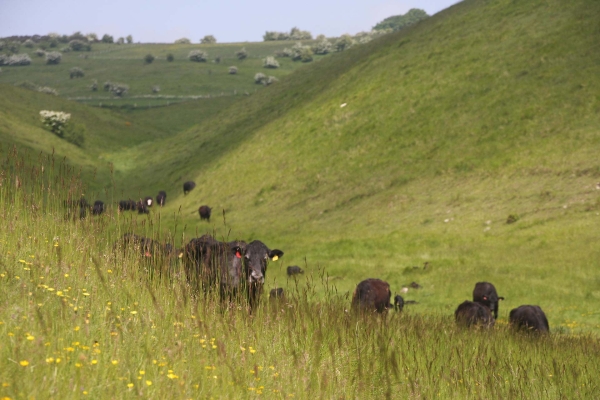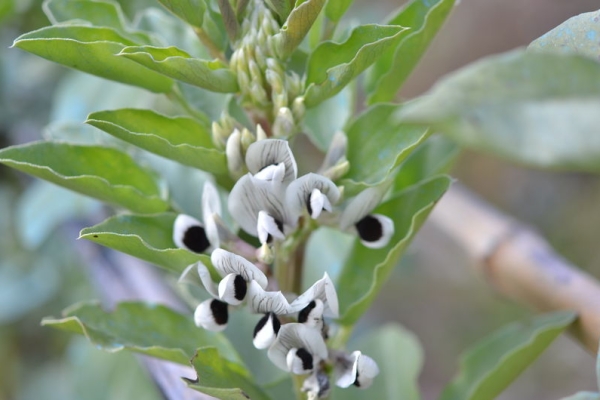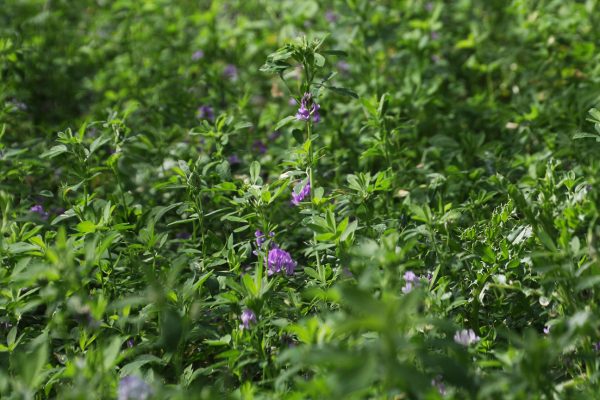Feeding dairy cows in winter
Resource explained
Growing your own organic feedstuffs can reduce reliance on expensive concentrates, benefit your herd, soils and financial performance, and strengthen collaboration with your organic neighbours. This article published in the journal Organic Farming provides practical approaches to reducing reliance on concentrate feeds, mainly based on Devon-based organic dairy farmer Henry Gent’s positive experiences. He needed a steady milk supply without a consistent guaranteed grass supply and didn’t want a high-input silage-based system. The article explains how Henry benefits from splitting his herd into spring and autumn calving blocks and establishing a whole-crop silage system, and provides pointers on how to harmonise growing organic protein crops with other farm activities (heifer rearing) and farm management (setting milk yield and milk from forage targets). It also highlights opportunities for collaboration with neighbouring arable farmers for the benefit of both parties: providing good quality cereal crops, lower weed burdens, and higher soil fertility.
Findings & recommendations
- Replacing organic feedstuffs with your own whole-crop cereals can save you money, enhance your soils and improve weed control.
- Henry Gent has developed a system that uses whole-crop cereals and their aftermaths:
- He split his herd into autumn calvers (whole-crop silage-based and grass diet) and spring calvers (grass-based, out all winter)
- He sows fields on which cows are overwintered with a spring barley and pea mix. They are undersown with a hybrid kale mix
- The kale lifts the protein content of the whole-crop silage, and provides winter feed for the spring calvers
- The peas provide extra protein and boost the crop nitrogen supply
- Other options for reducing reliance on concentrates include amending winter diets and targeting slightly lower milk yields (which can significantly reduce the concentrate feed required where forage quality is good enough).
- Collaborating with your arable neighbours and rearing heifers on their land can benefit both parties; they can grow cereals on the land released and enhance their soil fertility.
- The article refers to an Innovative Farmers field lab (sponsored by Mole Valley Farmers), which is investigating practical aspects of growing organic protein crops in the UK. Find out more about the field lab here.
